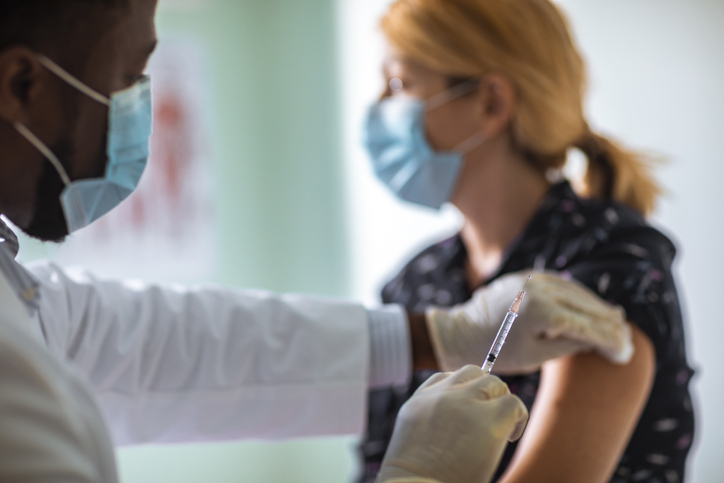Vaccines for adults?
September 1, 2020

When we think of vaccines, we often think of children and specifically the immunizations that are required by age for school physicals. According to the CDC, 70.4 percent of U.S. children have met those requirements – demonstrating that a majority of parents are compliant and understand vaccinations are essential for their child.
But it’s important for adults to know and understand the vaccines they need as well. It’s generally common knowledge that, no matter your age, if you step on a rusty nail you are told to get a tetanus shot. A tetanus vaccine prevents you from getting a disease called tetanus, also known as lockjaw. (No, your mom did not make that up!) Tetanus is an infection caused by bacteria called Clostridium tetani, which live in places like water, soil and dust. This bacteria can enter the body through breaks in the skin such as cuts and puncture wounds and irritate the nerves to cause muscle spasms, muscle tightness and muscle cramps. Tetanus can also lead to difficulty breathing and seizures that are powerful enough to break bones in the body. When left untreated, tetanus can cause death.
Another common vaccine is the flu shot and this year more than ever, physicians are encouraging everyone to get a flu shot. According to Evans Sirois, D.O., internal medicine physician with NCH Medical Group, “Current influenza vaccines cover three or four strains of influenza. The trivalent vaccine contains two influenza A virus antigens and one influenza B virus antigen, whereas the quadrivalent vaccine contains two influenza A antigens and two influenza B antigens. The decision of which influenza strains to include in the vaccines is based on global surveillance of influenza viruses circulated at the end of the prior flu season.”
The tetanus shot and flu shot are well known, but how many adults know what other kind of vaccines are recommended for them?
“The shingles vaccine is recommended for adults over age 50,” says Dr. Sirois. “The CDC estimates that one third of adults will have shingles during their lifetime, and the risk of having shingles increases with age. So it’s definitely a good idea to avoid the pain of shingles through vaccination.”
“Streptococcus pneumoniae is the leading bacterial cause of pneumonia worldwide,” continues Dr. Sirois. “The recommendation is that all adults older than age 65 should be vaccinated against pneumonia, and adults younger than 65 with a chronic medical condition should also be vaccinated. Vaccination of adults with the 23-valent pneumococcal polysaccharide vaccine (PPSV23) protects 50 to 85 percent of relatively healthy adult recipients against severe pneumococcal disease.”
Additionally, sometimes adults learn that they did not have all the recommended vaccines in their younger years for one reason or another. Dr. Sirois tells us, “Yes, there are definitely adults who decide they want to receive vaccines that normally would be given in childhood. Adults who have never been immunized should receive the flu shot, Tdap, MMR, HPV and chicken pox vaccines.”
The world is anxiously awaiting a safe, effective COVID-19 vaccine, but how do we know it will be safe? According to Dr. Sirois, “Vaccines that are recommended are fully tested in large numbers of subjects before they are licensed by the U.S. Food and Drug Administration (FDA). After licensing, vaccines are monitored by the CDC and the FDA through the Vaccine Adverse Event Reporting System and the Vaccine Safety Datalink. When concerns are identified, the FDA issues news releases and may temporarily or permanently suspend the use of a specific vaccine. An example is when the Rota Shield rotavirus vaccine was withdrawn from the market in 1999.
Finally, during the pandemic we’ve heard the term “herd immunity” used in media stories, but many wonder what that means. “If a rancher has a herd of animals that has been vaccinated against a disease, then the disease will not be able to sweep through the herd. Similarly, as members of society when we choose to be vaccinated we are protecting those most vulnerable members of our population from being exposed to disease. When you are vaccinated, you help protect not only yourself, but the elderly, the young and those with weakened immune systems, by preventing the spread of disease to them.”
Dr. Sirois specializes in internal medicine and sees patients in our Mount Prospect office. If you are interested in making an appointment with him, call 847-618-5450.